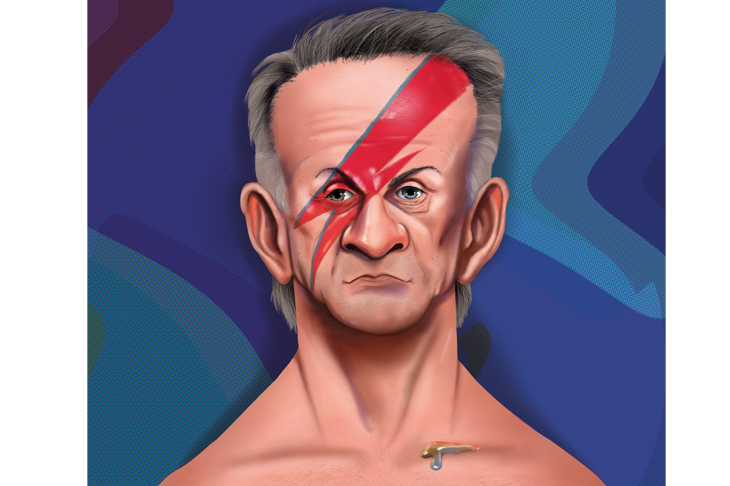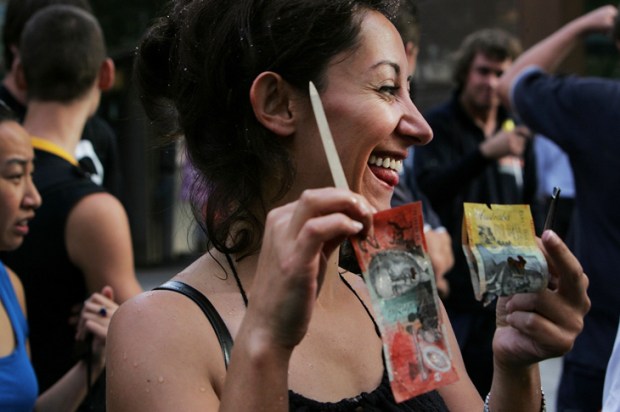One doesn’t normally associate David Bowie, the androgenous rock star of the Seventies and Eighties, with piercingly accurate political analysis. But recently I saw an old interview with the Thin White Duke (recorded at a time when the internet was becoming prominent) that seemed incredibly insightful.
Bowie argued that up until the invention of the internet, the human knowledge-set was reasonably well settled. While historians sometimes differed, this was only at the margins, giving us a definitive interpretation of past events. So too, most aspects of science had been resolved.
Social values and norms were framed around mainstream notions of decency and commonsense. The parameters of political debate, while keenly contested at election time, pivoted on the orthodoxy of a handful of major parties.
It was as if the 18th-century Enlightenment had struck an ideal balance: creating new freedoms of speech to debate concepts and ideas, thereby further advancing the knowledge-set, but within accepted boundaries as to what was factual and what was nonsense.
Very few people subscribed to conspiracy theories or wacky notions of information being ‘socially constructed’ and ‘fluid’. Observable truths were respected as the foundation-stone of intellectual enlightenment.
Bowie’s thesis was that the internet would blow this settlement apart. As a mostly unregulated, open-access regime it would give a wide range of political activists the forum and space they needed to create their own self-serving narratives, unchallenged by the disciplines of evidence and facts.
This in turn would fragment society, as people would find their own group with which to associate and support online. Public life would be transformed, becoming more divisive and censorious as political tribes tried to close down their rivals and embed their beliefs in popular culture.
The orthodoxies of history, science, education and major party politics would come under permanent siege. And as this process played out, the internet tribes would dig in deeper, fortifying their positions with fewer facts and even less evidence, talking mainly to themselves (in what we now call the political ‘bubble’).
Bowie said we had to turn and face this change. As ever in his lyrics, strange fascinations fascinated him.
One would have to say, 30 years later, his dismal prophecy has been realised. He has given us a handy framework within which to understand the new politics of ‘fake news’ and ‘cancel culture’.
In the madness of today’s politics, why shouldn’t we take the unexpected wisdom of Ziggy Stardust as a reference point?
It helps to explain why the political centre has hollowed out and the major party vote has declined. They have been cannibalised by movements to the left and right of them.
Five new tribes have emerged in politics, as confirmation of Bowie’s thesis:
The Lunar Right
Some voters are dazed and confused by the extent of change in our public institutions. Old certainties have been lost, replaced by the alien authoritarianism of political correctness, identity politics, gender fluidity, decarbonisation and cancel culture. In seeking out a single, simple explanation, the Lunar Right has latched onto the theory of international conspiracy, through the UN, WEF, Agenda 21, WHO, COP and any other globalist forum that carries an acronym.
I hear from these people often and I can assure them: most of the political madness we have in Australia is homegrown. Adam Bandt, Lidia Thorpe, Penny Wong and Anthony Albanese have been refining their leftist agenda for decades. They don’t receive, or in fact need, memos from the UN every other day to do their worst.
Policy Traditionalists
This is where I have tried to position NSW One Nation, around a belief that Australian public policy reached a high-water mark of effectiveness during the Hawke-Keating-Howard-Costello era. There was never any need for change.
For Traditionalists, our watchword is evidence: to reject the Left’s agenda based on its observable adverse impacts. Why, for instance, would Australia destroy its resource and manufacturing industries and millions of jobs when the elimination of our carbon emissions cannot have any measurable impact on global surface temperatures?
Surreal Teal
This is the new politics of wealthy indulgence: well-heeled women so comfortable in life they have deluded themselves into thinking they can repair any part of society and ultimately, save the planet. They only visit places like the Hunter Valley and Western Sydney by accident, so the loss of blue-collar jobs in these regions is inconsequential to their virtue-signalling.
Woke Identitarians
Labor used to believe in helping people on the basis of their socio-economic status. Now, bizarrely, it sees politics through the prism of things people were born with, the identity politics of race, gender and sexuality. Martin Luther King’s ethos of judging people by their character has been replaced by the primitive habit of judging them by how they look. Thus a privileged, powerful person like Penny Wong can plead disadvantage from being an Asian lesbian, even though no aspect of her life is actually disadvantaged.
The Green Extreme
Authoritarianism is back in fashion, with the Greens seeking to control the language, values, behaviour, family life and employment of other people. If you’ve ever met a Green MP you will know they can barely run their own lives, but this is not a barrier to trying to engineer everyone else’s life in their own image.
Bowie was right: Time can’t change me and I can’t change time. But the internet has changed everything.
Got something to add? Join the discussion and comment below.
Get 10 issues for just $10
Subscribe to The Spectator Australia today for the next 10 magazine issues, plus full online access, for just $10.
You might disagree with half of it, but you’ll enjoy reading all of it. Try your first month for free, then just $2 a week for the remainder of your first year.















Comments
Don't miss out
Join the conversation with other Spectator Australia readers. Subscribe to leave a comment.
SUBSCRIBEAlready a subscriber? Log in